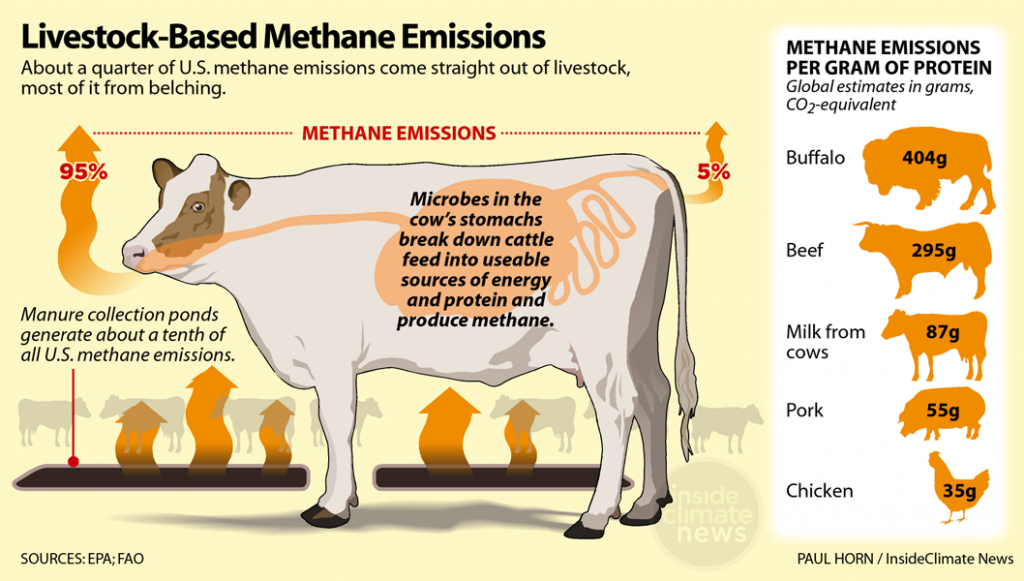Ahmedabad
(Head Office)Address : 506, 3rd EYE THREE (III), Opp. Induben Khakhrawala, Girish Cold Drink Cross Road, CG Road, Navrangpura, Ahmedabad, 380009.
Mobile : 8469231587 / 9586028957
Telephone : 079-40098991
E-mail: dics.upsc@gmail.com

Impact of Climate change on India’s Dairy Sector
News: In 2022, a study published in ‘Lancet’ estimated that increasing temperatures could reduce milk production in India’s arid and semi-arid regions by 25% by end century in 2085.
Statistics about Milk production in India:
• According to ‘Basic Animal Husbandry Statistics 2022’, total milk production in India was 221.06 million tonnes in 2021-2022. India is the largest milk producing country in the world.
• Top five major milk producing States are Rajasthan (15.05%), Uttar Pradesh (14.93%), Madhya Pradesh (8.06%), Gujarat (7.56%) and Andhra Pradesh (6.97%).
• India’s milk production is contributing around 23% of global milk production.
What is the impact of Heat Stress on cattle?
• Reduced Feed Intake and Production
• Impaired Immune System
• Increased Risk for Disease and Mortality
• Reduced Fertility - Heat-stressed cows show reduced fertility. Elevated temperatures affect the cow’s ability to display natural mating behaviour, as it reduces both the duration and intensity of oestrus (female animal's readiness to mate) expression.
• The decrease in conception rates during summer seasons can range between 20 and 30%, as per the study.
• Higher Somatic Cell Count (SCC) - Heat stress can lead to a higher SCC, which is often used as an indicator of milk quality.
What are the issues faced by Dairy farmers in India?
• Sex-sorted semen production, which aims to produce only female calves up to “90% accuracy”. This has been done to enhance milk production and limit stray cattle population.
• Over the next five years, 5.1 million pregnancies will be established under the programme that offers a subsidy of Rs 750 or 50% of the cost of sex-sorted semen on assured pregnancy. This policy has the repercussions of overlooking and eliminating male cattle slowly.
• In artificial insemination and natural service, 50% of the calves are male and 50% are female calves. Under this policy, female cattle are going to grow. The government has ignored that male cattle can be used in farming as an energy source. There is also the issue of utility of female animals after they become unproductive, because it has become difficult to sell cows due to the anti-slaughter rules across many States.
Way Forward
• The country’s milk production has been steadily increasing. However, the impact of rising temperatures, especially on cross-bred cows will make the task of meeting domestic demand difficult.
• Thus there is need to encourage research and innovation in cattle breeding and management practices, promote sustainable farming practices and the use of renewable energy sources for dairy operations.

Address : 506, 3rd EYE THREE (III), Opp. Induben Khakhrawala, Girish Cold Drink Cross Road, CG Road, Navrangpura, Ahmedabad, 380009.
Mobile : 8469231587 / 9586028957
Telephone : 079-40098991
E-mail: dics.upsc@gmail.com
Address: A-306, The Landmark, Urjanagar-1, Opp. Spicy Street, Kudasan – Por Road, Kudasan, Gandhinagar – 382421
Mobile : 9723832444 / 9723932444
E-mail: dics.gnagar@gmail.com
Address: 2nd Floor, 9 Shivali Society, L&T Circle, opp. Ratri Bazar, Karelibaugh, Vadodara, 390018
Mobile : 9725692037 / 9725692054
E-mail: dics.vadodara@gmail.com
Address: 403, Raj Victoria, Opp. Pal Walkway, Near Galaxy Circle, Pal, Surat-394510
Mobile : 8401031583 / 8401031587
E-mail: dics.surat@gmail.com
Address: 303,305 K 158 Complex Above Magson, Sindhubhavan Road Ahmedabad-380059
Mobile : 9974751177 / 8469231587
E-mail: dicssbr@gmail.com
Address: 57/17, 2nd Floor, Old Rajinder Nagar Market, Bada Bazaar Marg, Delhi-60
Mobile : 9104830862 / 9104830865
E-mail: dics.newdelhi@gmail.com